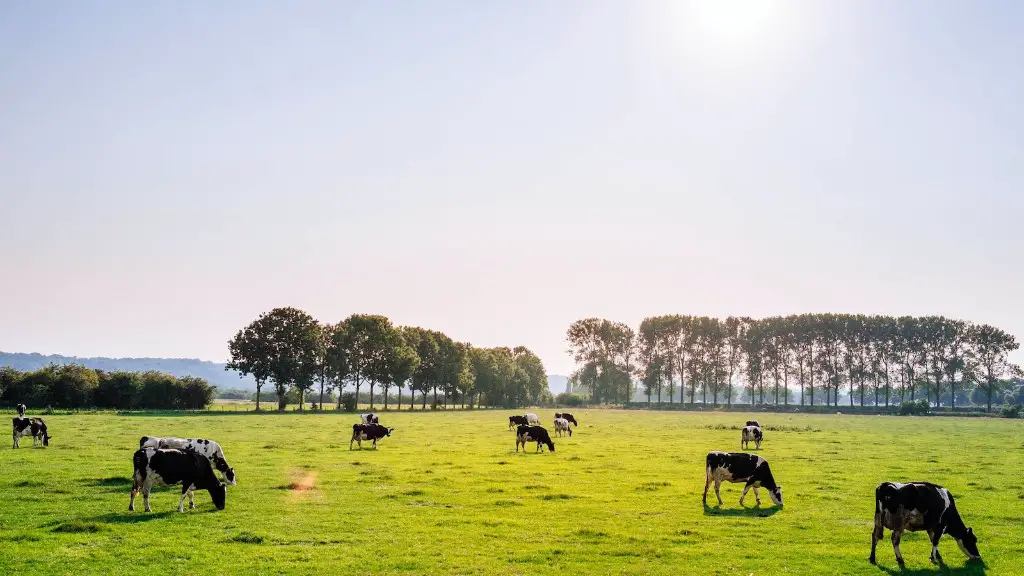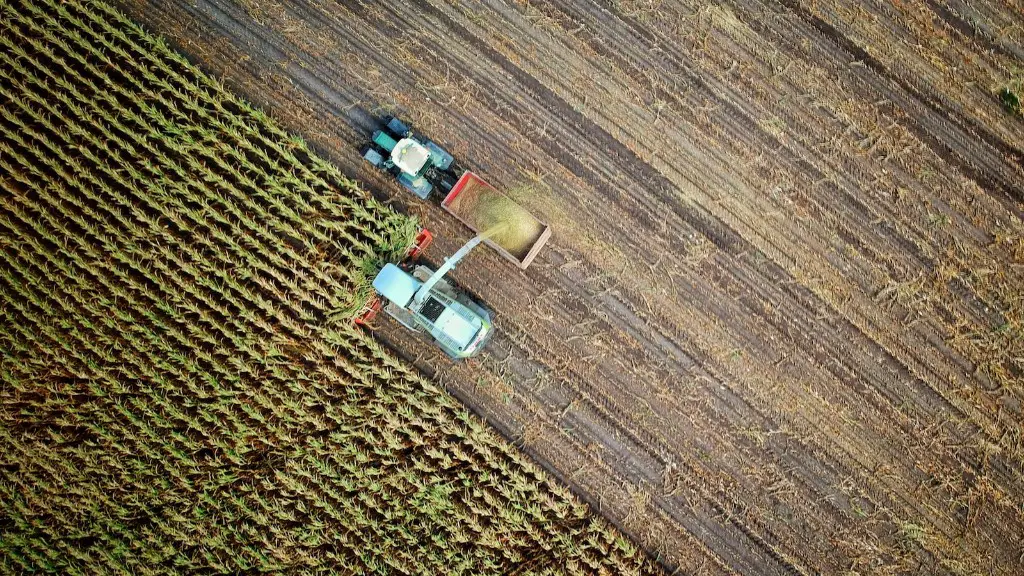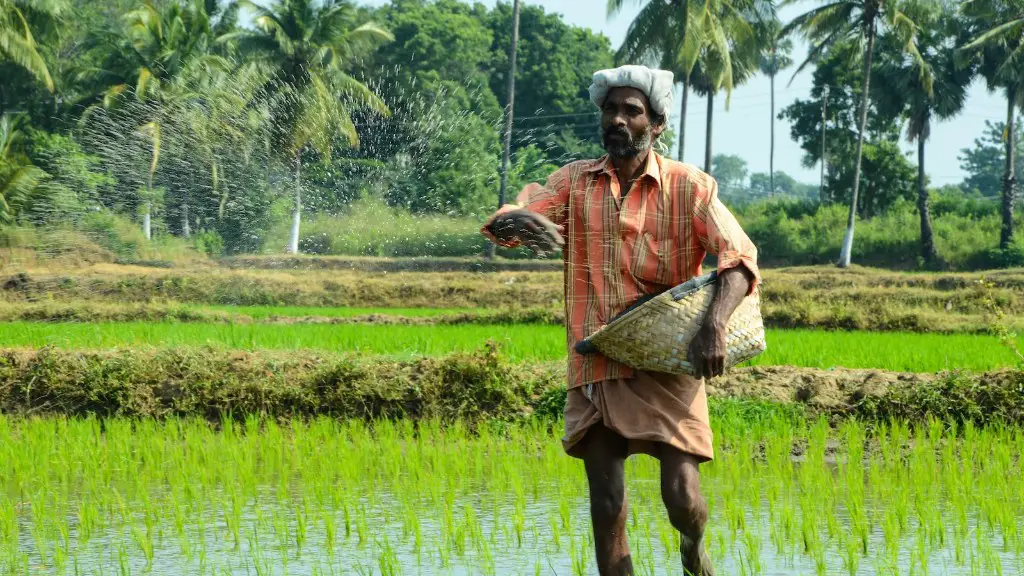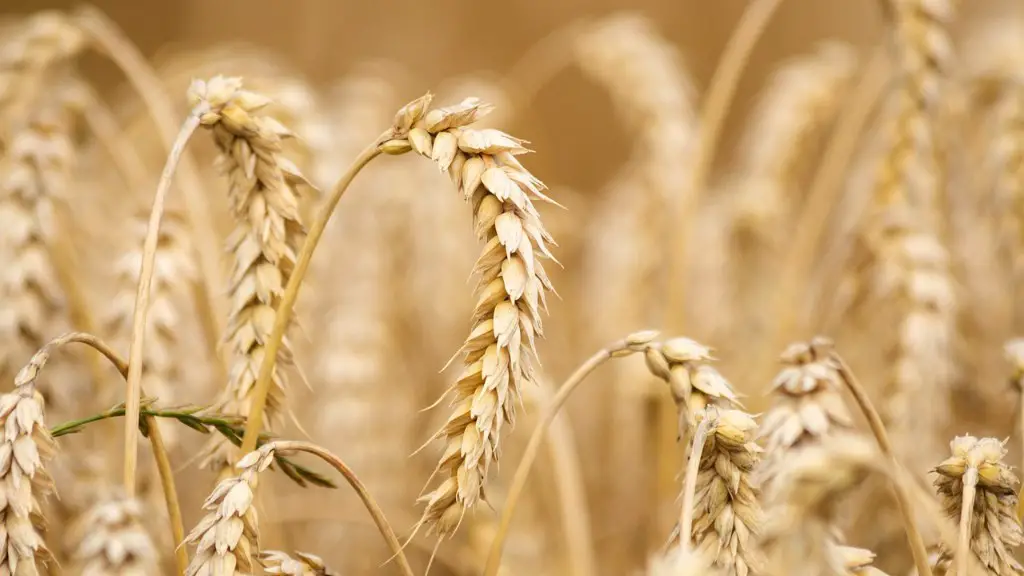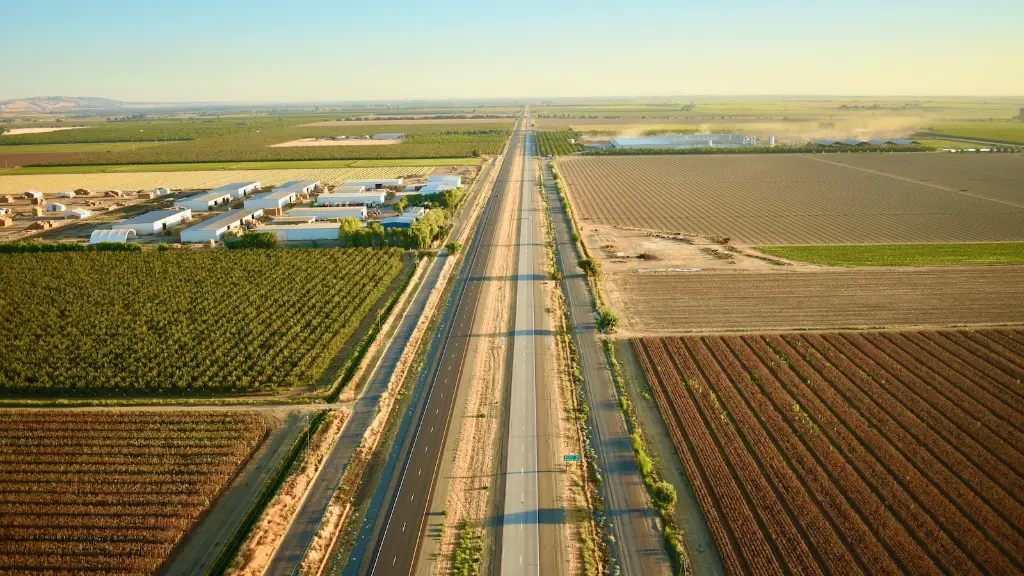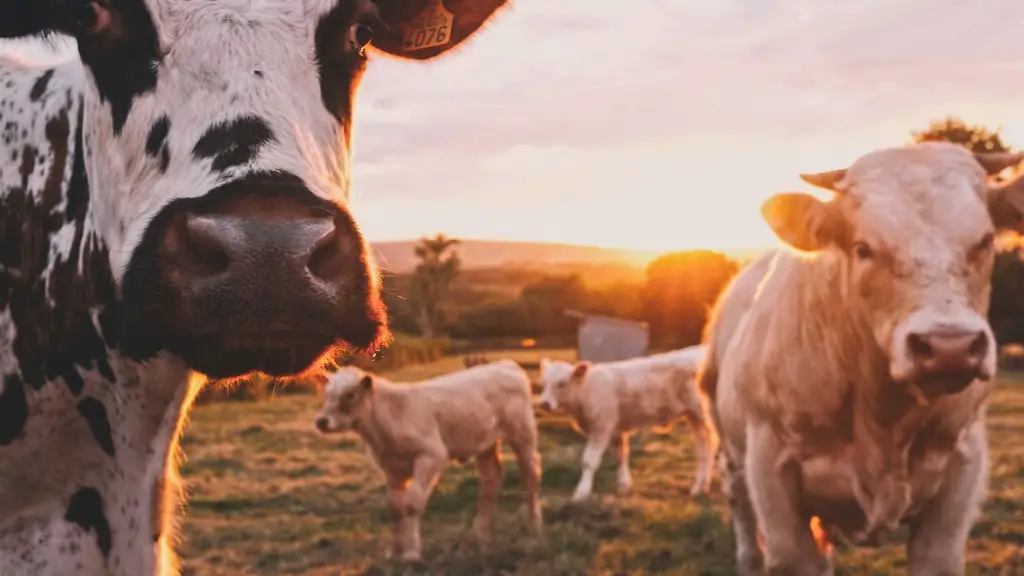The terms ‘sustainable agriculture’ has been defined in various ways, but the general consensus is that it is an approach to food production that is environmentally sensitive, socially just, and economically viable. In other words, sustainable agriculture practices seek to protect and enhance the natural resources upon which farming depends, such as soil, water, and biodiversity. It also strives to ensure that farmers and farmworkers are treated fairly, and that farm businesses are economically viable.
Sustainable agriculture is an approach to farming that seeks to protect and improve the environment, while also providing for the needs of the farmers and the community. Sustainable agriculture includes a variety of practices, such as using sustainable crop rotations and planting cover crops.
What is sustainable agriculture answers?
Sustainable farming is a term that is used to describe a type of agriculture that can be maintained indefinitely. This type of farming incorporates initiatives that allow farms to maintain their productivity and usefulness to society without compromising production output. Throughout the process of sustainable farming, it is important not to compromise production output in order to maintain the sustainability of the farm.
Cover crops and perennials are important for protecting and building soil health. They help prevent erosion, replenish soil nutrients, and keep weeds in check. This reduces the need for fertilizers and herbicides.
What are 3 types of sustainable agriculture
Sustainable agriculture is an approach to food production that is environmentally responsible, socially just, and economically viable. There are many different sustainable agriculture methods and farming practices, but some common themes include diversifying crops, using renewable resources, and minimizing chemical inputs.
Permaculture is a sustainable agriculture system that focuses on designing ecosystems that are self-sufficient and resilient. Permaculture principles can be applied to any environment, including urban and suburban areas.
Biodynamic farming is another sustainable agriculture method that emphasizes working with natural rhythms and cycles. Biodynamic farmers often use compost and other natural materials to improve the health of their soils.
Hydroponics and aquaponics are two sustainable agriculture methods that use minimal land and water. These systems can be used to grow a variety of crops, including fruits and vegetables.
Urban agriculture is a type of sustainable agriculture that is practiced in cities and other built-up areas. Urban farmers often use innovative techniques, such as vertical gardening, to make the most of limited space.
Agroforestry and food forests are two more sustainable agriculture methods that incorporate trees into the landscape. Agroforestry systems can provide a variety of benefits, including improved soil health and increased biodiversity.
Sustainable agriculture is a system of production that maintains the health of the environment, the economy, and the social fabric of the community. The three main pillars of sustainability are environmental resource protection, profitability of individual farms, and viability of rural communities.
Sustainable agriculture production protects natural resources through practices such as conservation tillage, which reduces soil erosion; crop rotation, which improves soil health; and integrated pest management, which reduces the use of harmful pesticides. In addition, sustainable farmers often use cover crops and buffer strips to protect water quality.
Profitable farms are the backbone of a sustainable agricultural system. Family farms are often the most efficient and environmentally friendly type of production system. They are also an important part of the social fabric of rural communities.
Policy questions related to the competitiveness of medium sized, family farms are important to the sustainability of the agricultural system. Farmers need to be able to make a living off their farm in order to stay in business. Government policies that support the viability of family farms help to ensure the long-term sustainability of agriculture.
Why is sustainable agriculture so important?
Sustainable agriculture is a type of agriculture that is practiced in a way that protects the environment, while still being productive. This means using methods that preserve the earth’s natural resources, while still providing the food and other resources that we need. Sustainable agriculture benefits the environment in many ways, including helping to maintain soil quality, reducing erosion, and preserving water.
Crop rotation is a great way to keep your soil healthy and reduce the need for pesticides. By growing different crops in different seasons, you can help keep your soil fertility high and reduce the chances of pests and diseases.
What are the four types of sustainable agriculture?
The elements of sustainable agriculture contribute to the long-term health of the environment. Permaculture is a type of agriculture that focuses on creating a sustainable ecosystem. Agroforestry is another type of sustainable agriculture that uses trees and other plants to create a sustainable ecosystem. Mixed farming is a type of agriculture that combines elements of bothpermaculture and agroforestry. Multiple cropping is a type of agriculture that grows a variety of crops in the same area. Crop rotation is a type of agriculture that involves growing different crops in different areas over time.
Crop rotation is a critical aspect of sustainable agriculture. It helps to build healthier soil and also promotes diversity. Intercropping and growing cover crops help to prevent soil erosion and also replenish nutrients. And, managing irrigation to reduce runoff is another key practice that helps prevent soil erosion.
What type of agriculture is the most sustainable
Sustainable farming practices are becoming increasingly popular as we become more aware of the negative impact traditional farming can have on the environment. These five sustainable farming practices are some of the most effective ways to produce vegetables and plants in a green and environmentally friendly way.
Permaculture is a sustainable farming practice that mimics the natural ecosystems found in nature. This type of farming is focused on creating a self-sufficient system that requires little to no outside input. Aquaponics and hydroponics are two sustainable farming practices that use water instead of soil to grow plants. These methods are extremely efficient and use far less water than traditional farming methods.
Using renewable energy resources is another great way to farm sustainably. Solar, wind, and geothermal energy can all be used to power farm equipment and help reduce dependence on fossil fuels. Crop rotation and polycultures are two more sustainable farming practices that can help improve soil health and increase yields.
Trees can also play a role in sustainable farming. They can provide shade and windbreaks, help reduce soil erosion, and even increase crop yields. Wrapping it up, sustainable farming practices are becoming more and more necessary as we look to protect our environment. By implementing some of these practices, we can ensure
Sustainable agriculture production practices focus on maximizing on-farm resources while diversifying to develop healthy soils and reduce purchased inputs. This ensures that the agricultural system is more resilient and less reliant on external inputs.
Which is the main problem of sustainable agriculture?
Our demand for food, feed, fibre, and goods and services from agriculture is growing rapidly, but our natural resources are dwindling. This is a huge challenge that we must face head-on. We need to find ways to produce more food with fewer resources. This will require innovative thinking and new technology. We must also work to reduce our demand for agricultural products. We can do this by increasing our efficiency and using less resource-intensive products.
Sustainable agriculture is a type of agriculture that is practiced in a way that is environmentally friendly, socially responsible, and economy-conscious. Sustainable agriculture also promotes economic stability for farms and helps farmers to better their quality of life.
There are many different practices that fall under the umbrella of sustainable agriculture, but some common ones include using organic farming practices, rotating crops, and using natural pest control methods. Sustainable agriculture is becoming increasingly important as the world population continues to grow and the demand for food increases. With sustainable agriculture, we can ensure that future generations will have access to the same resources that we have today.
What are the pros and cons of sustainable agriculture
There are both advantages and disadvantages to sustainable agriculture. Some of the advantages include cost reduction, control of air and water pollution and soil erosion, biodiversity, and social equality. However, some of the downsides include the fact that it takes time for farmers to carry out their farm operations, and that not all sustainable agriculture practices are suitable for all farming conditions.
There are a number of ways to increase profitable farm income while promoting environmental stewardship and enhancing quality of life for farm families and communities. One way is to increase production for human food and fiber needs. This can be done by increasing yields, reducing inputs costs, or finding new markets for products. Another way to increase farm income is to add value to products through processing or other means. This can create new revenue streams and help to offset some of the costs of production. Finally, diversification can also be a key to profitability, as it can help to spread risk and provide additional sources of income.
What are 3 reasons favoring sustainable farming?
Organic agriculture has many advantages over traditional farming methods. It is more sustainable, helps to protect against GMOs, and can improve the quality of the soil and land. Additionally, organic farming methods tend to be more humane, reducing the pollution caused by traditional farming methods. In the long run, organic agriculture can be more beneficial for both farmers and consumers.
Over-use of agricultural chemicals has led to a number of problems, including contamination of ground and surface water, hazards to human and animal health, and adverse effects on food safety and quality. These problems underscore the need to better manage the use of agricultural chemicals and to promote the use of more environmentally friendly practices.
Conclusion
Sustainable agriculture is the practice of producing crops in a way that minimizes damage to the environment and preserves natural resources. Farmers who adopt sustainable practices often use rotational grazing, crop rotation, and cover crops to improve soil health, reduce the need for chemical inputs, and limit the amount of water and energy used.
Sustainable agriculture is a type of agriculture that focuses on producing long-term crops and livestock while protecting the environment. This type of agriculture takes into account the environmental impact of farming practices and strives to minimize negative impacts. Sustainable agriculture also aims to be economically viable and to provide farmers with a good standard of living.
